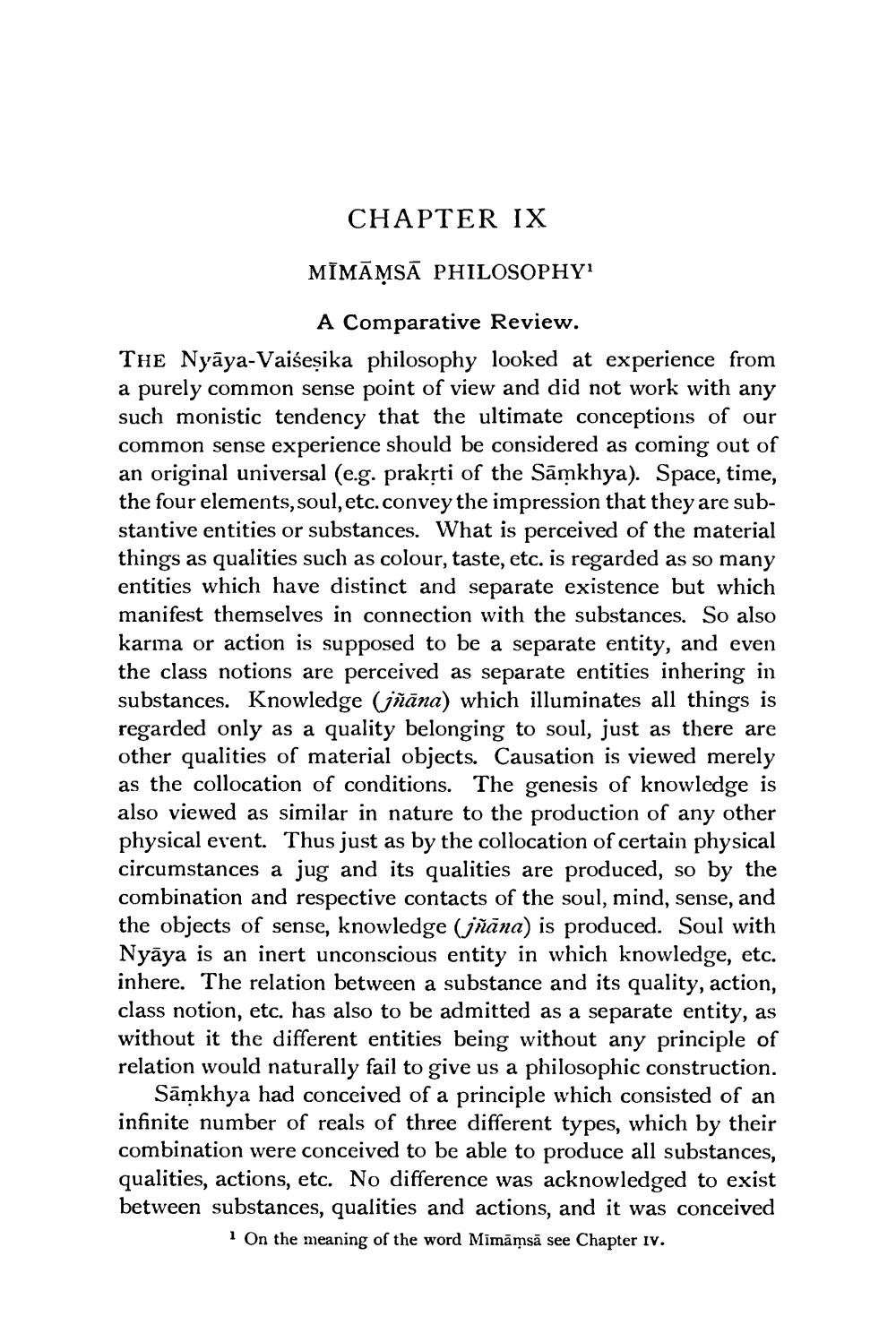________________
CHAPTERIX
MĪMĀŅSĀ PHILOSOPHY
A Comparative Review. THE Nyāya-Vaišeșika philosophy looked at experience from a purely common sense point of view and did not work with any such monistic tendency that the ultimate conceptions of our common sense experience should be considered as coming out of an original universal (e.g. prakrti of the Samkhya). Space, time, the four elements, soul, etc. convey the impression that they are substantive entities or substances. What is perceived of the material things as qualities such as colour, taste, etc. is regarded as so many entities which have distinct and separate existence but which manifest themselves in connection with the substances. So also karma or action is supposed to be a separate entity, and even the class notions are perceived as separate entities inhering in substances. Knowledge (jñāna) which illuminates all things is regarded only as a quality belonging to soul, just as there are other qualities of material objects. Causation is viewed merely as the collocation of conditions. The genesis of knowledge is also viewed as similar in nature to the production of any other physical erent. Thus just as by the collocation of certain physical circumstances a jug and its qualities are produced, so by the combination and respective contacts of the soul, mind, sense, and the objects of sense, knowledge (jñāna) is produced. Soul with Nyāya is an inert unconscious entity in which knowledge, etc. inhere. The relation between a substance and its quality, action, class notion, etc. has also to be admitted as a separate entity, as without it the different entities being without any principle of relation would naturally fail to give us a philosophic construction.
Samkhya had conceived of a principle which consisted of an infinite number of reals of three different types, which by their combination were conceived to be able to produce all substances, qualities, actions, etc. No difference was acknowledged to exist between substances, qualities and actions, and it was conceived
i On the meaning of the word Mimāmsā see Chapter iv.




